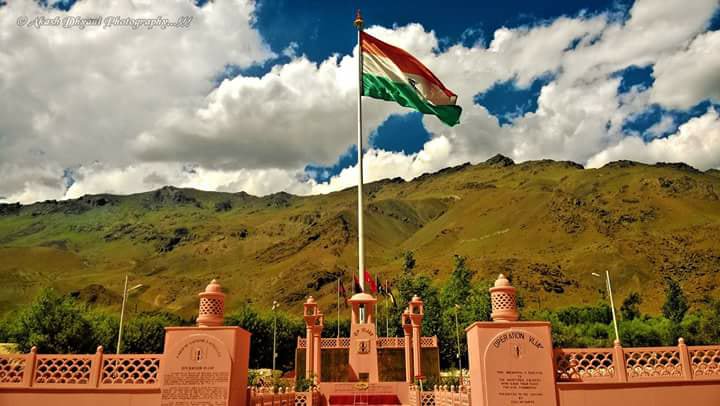POSTAL JOINT COUNCIL OF ACTION
NATIONAL FEDERATION OF POSTAL EMPLOYEES
FEDERATION OF NATIONAL POSTAL ORGANIZATIONS
ALL INDIA POSTAL EMPLOYEES UNION – GDS
NATIONAL UNION – GDS
No. PJCA/2/2019 Dated: 15th July 2019
MEMORANDUM
To
Shri A N Nanda,
Secretary,
Department of Posts,
Dak Bhawan, New Delhi-110 001
Sub: Submission of Memorandum on long pending demands.
Sir,
It is to bring to your kind notice that on so many occasions, we as PJCA have raised our long pending genuine demands before the Department. But it is highly regretted that no effective steps have been taken by the Department to mitigate the problems causing more sufferings to the employees.
After introduction of technology in the form of CBS/CSI/CIS/MNOP/PNOP & now RICT the staff is suffering very much. We are bringing all the problems being faced by the staff at ground level separately on each subject but no solution is coming out.
A meeting of Postal Joint Council of Action consisting NFPE,FNPO,AIPEU-GDS & NUGDS was held at FNPO Office. T-24, Atul Grove Road New Delhi on 13.07.2019. In the meeting all General Secretaries, of NFPE, FNPO AIPEU-GDS and NUGDS participated. After thorough discussion, PJCA has come to the conclusion that a memorandum should be submitted to Secretary (Post) for settlement of demands as mentioned in the Charter of Demands enclosed here with.
We request you to kindly arrange one meeting with office bearers of PJCA to discuss the issues and settle the same as early as possible failing which we (PJCA) will be compelled to launch agitational programmes in a phased manner.
With regards
Yours Sincerely,
(T N Rahate) (R.N. Parashar)
Secretary General (FNPO) Secretary General (NFPE)
(P U Muralidharan) (P Pandurangarao)
General Secretary-NUGDS General Secretary-AIPEU-GDS
CHARTER OF DEMANDS
1. Settle all the problems arisen out of implementation of C.S.I, R.I.C.T./ IPPB / CBS and Postmen delivery mobile App & CIS.
2. Implement all positive recommendations of Sri Kamlesh Chandra Committee report and grant Civil servant Status to GDS.
3. Fill up all Vacant Posts in all cadres of Department of Post i.e. P.A/S.A, Postmen, Mail Guard, Mailmen, MMS, MTS, GDS, Postal Acctts, P.A Admn. Offices, P.A SBCO & Civil Wing etc within a time frame and separate identity of all cadres.
4. Withdraw NPS and Guarantee minimum pension 50% of last pay drawn.
5. Membership verification of G.D.S and declaration of result of regular employees membership verification conducted in 2015.
6. Implementation of orders of payment of revised wages and arrears to the casual , Part time, Contingent employees & daily rated mazdoors as per 6th and 7th CPC and Regularize Services of casual Labourers.
7. Implement Cadre Restructuring for left out categories i.e. RMS, MMS, Postman/MTS, PACO, PASBCO, Postal Accounts, and Civil Wing etc.
8. Stop Privatization, Corporatization and out sourcing in Postal Services.
9. Scrap Bench Mark in MACP.
10. Implement 5 days week in Postal and RMS
11. Enhancement of higher pay scales to those categories whose minimum qualification has been enhanced e.g. Postmen, Mail guard.
12. Grant of pension to the promoted GDS based on Supreme Court Judgment in SLP No (C) 13042/2014
13. Withdraw orders of enhancement of cash conveyance limit without security.
14. Implement all High Court and Supreme Court decisions in C/W MACP, RTP and others.
15. Cash less treatment under CGHS and allotment of adequate fund under head MR & T.A
16. Retention of Civil wing in the Department of Post.
17. Holding of Departmental Council Meetings/RJCM and periodical meetings at all levels.
18. Stop Trade Union victimization and in the name of unscientific targets.
19. Provide 40 percent SCF quota promotion in AAO cadre and amend RR incorporating the modifications demanded by AIPAEA.
20. Status of audit to SBCO.
21. Restore Special Allowance to PO & RMS Accountants and OSA to RMS/MMS Staff.
22. All NSH and I.C. Speed Post Hubs should be under the administrative control of RMS and All L-2 Mail Offices should be identified as I.C. Speed Post Hubs and as Parcel Hubs.
23. Permission to all Staff of Circle Office, SBCO, Postal Accounts and RMS/MMS Staff to appear in Departmental Examination for promotion to PSS Group-B.
24. Improper functioning of Separate (Nodal) Parcel Delivery in India Post vis-a-vis heavy expenditure and undue harassment to the Postmen Delivery staff.










































